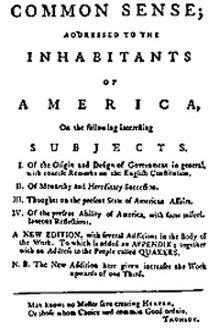Genre History. Page - 25

rd part of the column. Far ahead, he knew, were the Knights Templars, who had taken the advance. Behind the Templars rode the mailed knights of Brittany and Anjou. These were followed by King Guy of Jerusalem and the host of Poitou.
He himself, Sir Robert de Bouain, was riding with the Norman and English troops, just behind the men of Poitou. Sir Robert turned slightly in his saddle. To his right, he could see the brilliant red-and-gold banner of the lion-hearted Richard of England--gules, in pale three lions passant guardant or. Behind the standard-bearer, his great war horse moving with a steady, measured pace, his coronet of gold on his steel helm gleaming in the glaring desert sun, the lions of England on his firm-held shield, was the King himself.
Further behind, the Knights Hospitallers protected the rear, guarding the column of the hosts of Christendom from harassment by the Bedouins.
"By our Lady!" came a voice from his left. "Three days out from Acre, and the accursed Saracens still elude us."
Sir Robert de

made me one of their own. I shall never be able to repay all the loving thoughts and deeds of that family and shall remember them while I live. My chum's mother I call Mother too. It is to her that I have dedicated this book.
After my delightful few days of leave, things moved fast. I was back in Dover just two days when I, with two hundred other men, was sent to Winchester. Here we were notified that we were transferred to the Queen's Royal West Surrey Regiment.
This news brought a wild howl from the men. They wanted to stop with the Fusiliers. It is part of the British system that every man is taught the traditions and history of his regiment and to know that his is absolutely the best in the whole army. In a surprisingly short time they get so they swear by their own regiment and by their officers, and they protest bitterly at a transfer.
Personally I didn't care a rap. I had early made up my mind that I was a very small pebble on the beach and that it was up to me to obey ord

to be made and received, being pleasant or otherwise, according to whether callers and called-upon were heartily in sympathy with Anne's hopes, or thought she was too much puffed-up over going to college and that it was their duty to "take her down a peg or two."
The A.V.I.S. gave a farewell party in honor of Anne and Gilbert one evening at the home of Josie Pye, choosing that place, partly because Mr. Pye's house was large and convenient, partly because it was strongly suspected that the Pye girls would have nothing to do with the affair if their offer of the house for the party was not accepted. It was a very pleasant little time, for the Pye girls were gracious, and said and did nothing to mar the harmony of the occasion -- which was not according to their wont. Josie was unusually amiable -- so much so that she even remarked condescendingly to Anne,
"Your new dress is rather becoming to you, Anne. Really, you look ALMOST PRETTY in it."
"How kind of you to say so," responded Anne, wit

hall tell a story that may appear goodly, now we have heard that of Lauretta? Certes, it was well for us that hers was not the first, for that few of the others would have pleased after it, as I misdoubt me[199] will betide of those which are yet to tell this day. Natheless, be that as it may, I will e'en recount to you that which occurreth to me upon the proposed theme.
[Footnote 199: Lit. and so I hope (spero), a curious instance of the ancient Dantesque use of the word spero, I hope, in its contrary sense of fear.]
There was in the kingdom of France a gentleman called Isnard, Count of Roussillon, who, for that he was scant of health, still entertained about his person a physician, by name Master Gerard de Narbonne. The said count had one little son, and no more, hight Bertrand, who was exceeding handsome and agreeable, and with him other children of his own age were brought up. Among these latter was a daughter of the aforesaid physician, by name Gillette, who vowed to the said Bertrand an infinite love and fervent more than pertained unto her tender years. The count dying and leaving his son in the hands of

is, Colonel Lamon and others, and he promptly chose Colonel Lamon, who alone accompanied him on his journey from Harrisburg to Philadelphia and thence to Washington.
Before leaving the room Governor Curtin asked Colonel Lamon whether he was armed, and he answered by exhibiting a brace of fine pistols, a huge bowie knife, a black jack, and a pair of brass knuckles. Curtin answered: "You'll do," and they were started on their journey after all the telegraph wires had been cut. We awaited through what seemed almost an endless night, until the east was purpled with the coming of another day, when Colonel Scott, who had managed the whole scheme, reunited the wires and soon received from Colonel Lamon this dispatch: "Plums delivered nuts safely," which gave us the intensely gratifying information that Lincoln had arrived in Washington.
Of all the Presidents of the United States, and indeed of all the great statesmen who have made their indelible impress upon the policy of the Republic, Abraham Lincoln

by the combination, they have an undoubted privilege to inquire into the pretensions of both, and equally to reject the usurpations of either.
In the following sheets, the author hath studiously avoided every thing which is personal among ourselves. Compliments as well as censure to individuals make no part thereof. The wise, and the worthy, need not the triumph of a pamphlet; and those whose sentiments are injudicious, or unfriendly, will cease of themselves unless too much pains are bestowed upon their conversion.
The cause of America is in a great measure the cause of all mankind. Many circumstances have, and will arise, which are not local, but universal, and through which the principles of all Lovers of Mankind are affected, and in the Event of which, their Affections are interested. The laying of a Country desolate with Fire and Sword, declaring War against the natural rights of all Mankind, and extirpating the Defenders thereof from the Face of the Earth, is the Concern of every Man to wh

avery of the aboriginals is outweighed by the intelligence of theinvaders and their superior force of character. During the secondcentury of the Mohammedan era, when the inhabitants of Arabia went forthto conquer the world, one adventurous army struck south. The firstpioneers were followed at intervals by continual immigrations of Arabsnot only from Arabia but also across the deserts from Egypt and Marocco.The element thus introduced has spread and is spreading throughout theSoudan, as water soaks into a dry sponge. The aboriginals absorbed theinvaders they could not repel. The stronger race imposed its customs andlanguage on the negroes. The vigour of their blood sensibly altered thefacial appearance of the Soudanese. For more than a thousand years theinfluence of Mohammedanism, which appears to possess a strangefascination for negroid races, has been permeating the Soudan, and,although ignorance and natural obstacles impede the progress of newideas, the whole of the black race is gradually ado

e land.
_Quezox:_ But, noble Francos, we now wend our wayTo meet the vermin which do suck our blood,And they with tongues which serpent-like can charmMay fool thee with their tales of dire intent.
_Francos: (striking his breast):_
Fear not, they soon shall feel how vain it were
To seek to trick one who, in halls of state,
Hath met the wiles of shrewd, self-seeking men,
But to ward off attack with virtue's shield.
_Captain and Seldonskip approach._
_Captain:_ Most noble potentate, as I my rounds
Of observation make, it pleasures me
Most mightily, to make obeisance to
The one so honored by his native land.
As captain of a vessel may be judged
By those subordinate to his command,
So do I quick conception of thee form.
By the broad mental gifts of Seldonskip
Who were the hose, through which thy mind doth squirt Most sapient thought, for mankind's betterment.
_Seldonskip:_ You bet his

ury of both.
When the French Revolution broke out, it certainly afforded to Mr. Burke an opportunity of doing some good, had he been disposed to it; instead of which, no sooner did he see the old prejudices wearing away, than he immediately began sowing the seeds of a new inveteracy, as if he were afraid that England and France would cease to be enemies. That there are men in all countries who get their living by war, and by keeping up the quarrels of Nations, is as shocking as it is true; but when those who are concerned in the government of a country, make it their study to sow discord and cultivate prejudices between Nations, it becomes the more unpardonable.
With respect to a paragraph in this work alluding to Mr. Burke's having a pension, the report has been some time in circulation, at least two months; and as a person is often the last to hear what concerns him the most to know, I have mentioned it, that Mr. Burke may have an opportunity of contradicting the rumour, if he thinks proper.

THIS book is a slice of intensified historyhistory as I saw it. It does not pretend to be anything but a detailed account of the November Revolution, when the Bolsheviki, at the head of the workers and soldiers, seized the state power of Russia and placed it in the hands of the Soviets.
Naturally most of it deals with Red Petrograd, the capital and heart of the insurrection. But the reader must realize that what took place in Petrograd was almost exactly duplicated, with greater or lesser intensity, at different intervals of time, all over Russia.
In this book, the first of several which I am writing, I must confine myself to a chronicle of those events which I myself observed and experienced, and those supported by reliable evidence; preceded by two chapters briefly outlining the background and causes of the November Revolution. I am aware that these two chapters make difficult reading, but they are essential to an understanding of what follows.
Many questions will suggest themselves to the mind of the reader. What is Bolshevism? What kind of